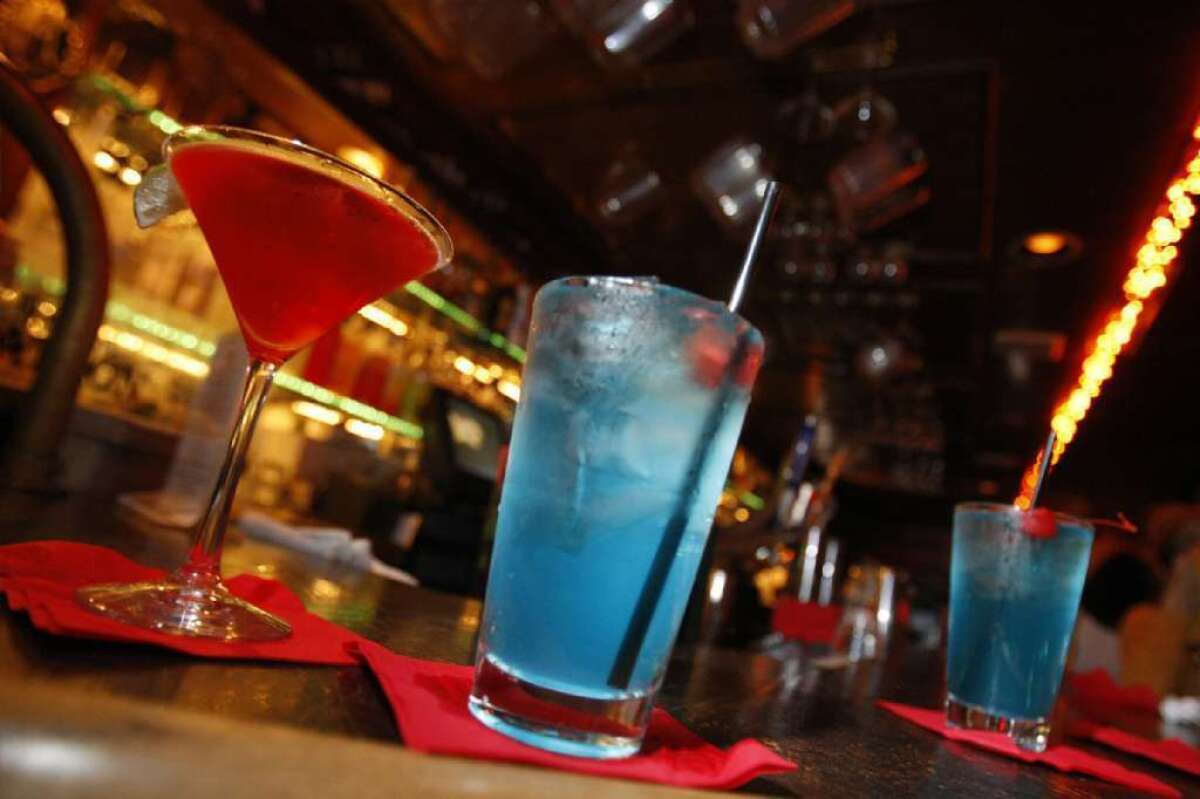Workaholics are more likely to drink too much alcohol, study says

- Share via
A long workweek may drive you to drink, new research shows.
Researchers analyzed data on more than 430,000 people and found that those who worked at least 49 hours a week were up to 13% more likely to engage in “risky alcohol use” compared with those who were on the job for only 35 to 40 hours a week, according to a study published Tuesday by the journal BMJ.
Risky alcohol use was defined as more than 14 drinks a week for women and more than 21 drinks a week for men. That much alcohol makes people vulnerable to a variety of health problems, including heart disease, stroke, liver problems and cancer.
For good or ill, alcohol and work frequently mix. In one survey cited by the research team, one-third of workers said they’ve come to work with a hangover and 15% said they have been drunk on the job. But the nature of the link between work hours and alcohol is murky.
So the team members combed through the medical literature in search of data sets that included information about people’s work and drinking habits. Two types of studies emerged.
In one category were cross-sectional studies, which offered a snapshot of work hours and alcohol consumption for 333,693 people in 14 countries. In this group, people who worked long hours – any amount exceeding 40 hours a week – were 11% more likely to be risky drinkers than people who worked more traditional hours.
The other group of studies included 100,602 people in nine countries who were tracked by researchers at least twice. Among those who didn’t start out as risky drinkers, those with lengthy workweeks were 12% more likely to become risky drinkers than their peers who didn’t log overtime.
The group that faced the biggest risk consisted of people who worked 49 to 54 hours a week. Compared with people who worked 35 to 40 hours a week, they were 13% more likely to be risky drinkers.
These increases may not sound like much, but when multiplied across the entire labor force of the 14 countries represented in the study, they translate into more than 2 million people who may be turning to alcohol to cope with their demanding workloads, according to Cassandra Okechukwu, who studies work-health issues at the Harvard School of Public Health and wrote an editorial that accompanies the study.
Most of the information about alcohol use was self-reported by study subjects. Since heavy drinkers tend to understate their drinking, the true link between long work hours and risky drinking might be greater than the study results indicate, the researchers wrote.
The study didn’t answer the obvious question of why people who work more are more inclined to drink, but the researchers had some theories. One is that drinking helped relieve stress brought on by stressful work conditions. Another is that hard-charging people naturally wind up in “work hard play hard” situations. A third possibility is that people who have sleep problems or are depressed might require more hours to finish their work and also be more inclined to drink.
For more news about medical research, follow me on Twitter @LATkarenkaplan and “like” Los Angeles Times Science & Health on Facebook.







